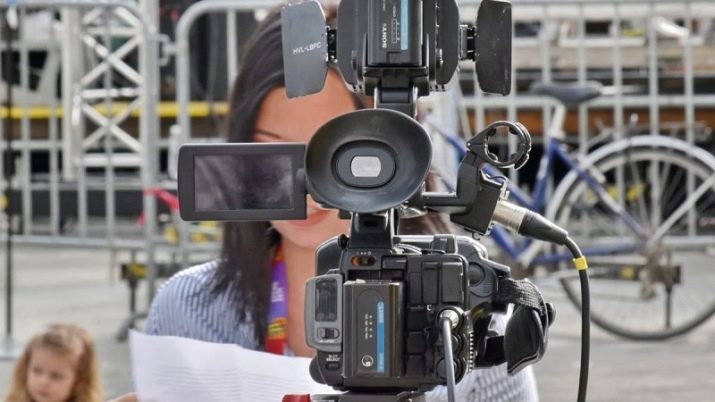Journalist and Correspondent - What's the Difference?

The profession of a journalist is quite multifaceted and creative. Representatives of this field of activity combine in their work the collection of relevant information and the creation of in-depth analytical materials. Sometimes the concepts "journalist" and "correspondent" are referred to as synonyms. However, these professions have a number of differences.

Reporter profession
The word "correspondent" in translation from German means "inform". The field of activity of this employee includes: collecting and searching for relevant information, transferring it from the scene. Also, correspondents are engaged in the creation of news blocks and news reports from the scene. An employee can be both on-staff and out of it. A reporter present on the spot is a reporter. These specialists are required in various media (print, electronic, television). The first correspondents appeared in the 18th century. In modern society, there are narrow specializations. We are talking about TV and photojournalists.
In addition to collecting information and creating stories, reporters are involved in interviews and investigations (gathering important information, creating a complete TV story).
The basic requirements for a correspondent are as follows:
- higher education (majoring in journalism);
- sociability;
- perfect literacy;
- experience in creating text and photographic materials.

Also, to work in the modern edition requires fluency in a foreign language, knowledge of certain areas (sports, politics, culture) and readiness for long business trips.... In addition, a person who has decided to connect his life with work in the media must improve his skills in working with computer programs and various equipment. The point is that the main task of the correspondent is to collect operational information.
The advantages of the profession include the following nuances:
- free work schedule;
- constant self-development;
- the correspondent is always in the spotlight and is able to earn a certain glory for himself;
- the reporter gets a chance to travel the world as part of his work and communicate with interesting and influential people.
A media representative has many steps in the career ladder. Over time, a newcomer may well claim to be the lead correspondent.
However, in addition to the advantages, there are some disadvantages. For example, a reporter working in a hot spot is often deeply stressed and puts his life in danger. Also, the reporter needs to look for an individual approach to each interlocutor, who may not always open up and answer one or another question.

Journalist profession
This field of activity implies not only the collection of information, but also its analysis. The work of a journalist is quite responsible and multifaceted. He is withgathers the necessary information and, on its basis, creates high-quality material, guided by the facts... The journalist not only collects information, but also analyzes, edits. The first journalists appeared in ancient Rome. In those days, people wrote important news on clay boards. As a separate field of activity, journalism emerged in the 18th century and instantly became a powerful tool for influencing society. Modern media are not only a source of information, but also act as a platform for the formation of public opinion. Sometimes the popularity of a particular publication depends on the creative potential of a journalist.
The profession of a journalist implies a higher education (specialty "Journalism"). A person should feel the native language and correctly express their thoughts. Don't forget your communication skills. It is important for an interviewer to get his interlocutor talking and get answers to his questions. The journalist must be objective and resistant to stress. Excessive emotions are not welcome in this profession. A modern specialist must have perfect knowledge of the native and foreign languages, have impeccable literacy and be able to express their thoughts concisely and logically.
A journalist should not be afraid of obstacles in the collection of this or that information and always move towards the goal. An important factor is the employee's ability to find an individual approach to the respondent. Also, a journalist must be able to create an artistic test from dry press releases. In addition, in his work, it is important to know the Law on Mass Media and the current legislation. An aspiring journalist, if desired and hard work, can become the chief editor of an influential publication.
In the modern world, analytical journalists in the field of politics, fashion and art are especially popular.

Differences and general characteristics
Naturally, the concepts of "journalist" and "correspondent" are close. Both are representatives of the media and act as informants for society. However, the difference in these professions is still obvious. So, we can draw certain conclusions.
- A journalist is different from a correspondent (reporter) broad specialization, which includes not only the collection of information, but also editing, text analysis and printing.
- The correspondent collects operational information on the basis of the here and now... A journalist, on the other hand, can prepare an article using material from different time layers. He also has the skills to handle business-style documents.
- The reporter is most often a staff member. While a journalist can be a freelance artist and combine article writing with another field of activity.
- Journalists often specialize in a specific topic (politics, economics, sports, art, science or medicine). It is no coincidence that many large companies publish corporate magazines and newspapers. Reporters don't always have a focus on a particular topic.









